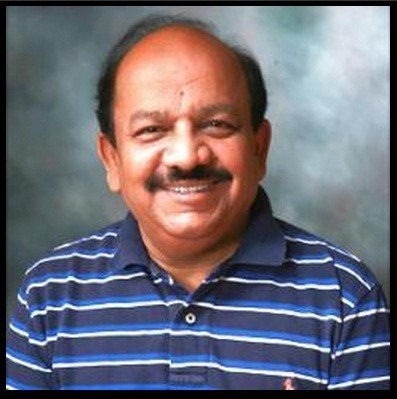
Following outrage over Health Minister Harsh Vardhan's statement on his website where he had said that "so called sex education should be banned (in schools)", the BJP leader on Friday used Facebook to give a clarification, saying that he had not proposed any such ban, and was referring to the former government's "vulgar" version.
Vardhan said his statement, which he had posted on his official website as part of the Educational Vision for Delhi's schools, was in reference to the UPA government's Adolescence Education Programme (AEP).
"Crudity and graphic representation of culturally objectionable symbols as manifested in the UPA's so called sex education programme cannot be called sex education. Every education system must strive to have an ideal curriculum and to that extent my stand is valid," he explained.
Vardhan said that chief ministers of several UPA-ruled states had themselves objected to the programme, which later led to the modification of the course.
The row over Vardhan's statement on sex education came in proximity of his controversial statement to a newspaper that it was values that could help prevent AIDS more than condoms. "Condoms promise safe sex, but the safest sex is through faithfulness to one's partner. Prevention is always better than cure," Vardhan had told the New York Times.
After his statement on sex education was picked up from his website by the media, the Health Minister was condemned for his regressive outlook. Vardhan wasted little time to log on to social media to clarify, saying: "I have comprehensively denied that I propose a ban on sex education as suggested by a prominent newspaper through banner headlines today. I am a medical professional who has embraced rationalism and I whole-heartedly support pedagogy that is scientific and culturally acceptable."
In an over 400-words statement on Facebook, which he wrote from the United States, Vardhan said that even when he held the Education portfolio in Delhi, sex education was part of the curriculum.
"I had earlier held the Education portfolio (along with Health) in the Delhi government between 1993 and 1998, introduced several lasting reforms in the curriculum of the state's schools in consultation with experts. There was a sex education component in the curriculum then too but nobody reported objections with it," he said.
He added that sex education was necessary to fight several problems in society. "Sex education that builds societies free of gender discrimination, teenage pregnancy, HIV-AIDS proliferation, pornography addiction etc. should be the goal," Vardhan noted.

















